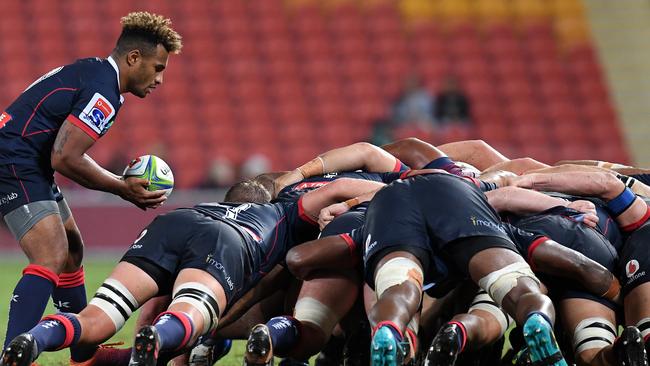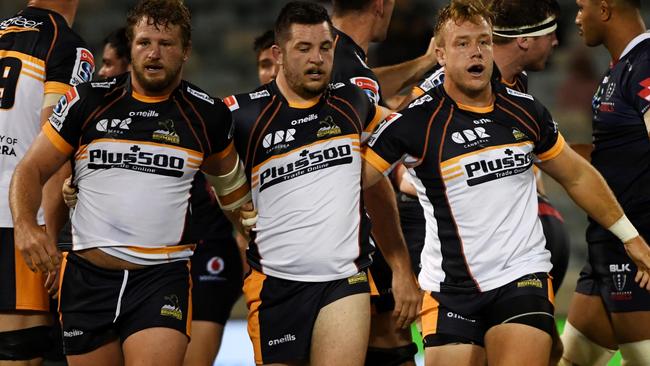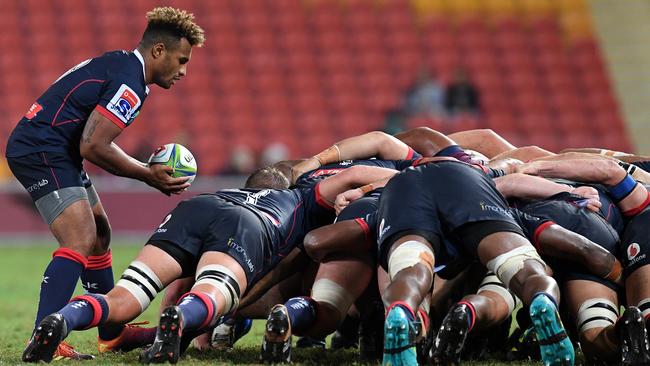Andrew Slack on the problem of dead time in rugby and how to fix it
Rugby fans seem to be getting less play for their buck and it’s time to stop the stop-start in rugby. Andrew Slack has a solution.

Rugby
Don't miss out on the headlines from Rugby. Followed categories will be added to My News.
How would you like to attend a concert where the band is on stage for the best part of an hour and a half but play for just thirty minutes?
You’d feel entitled to ask for a decent chunk of your ticket price back.
It’s true most band members haven’t got fifteen pumped up opponents trying to smash the living daylights out of them, but singers and professional rugby players are all in the entertainment industry and the paying public deserve their money’s worth.
I’ve been down this track before, but a friend’s text last week, not to mention numerous conversations over recent years with many other sport-friendly mates, suggests I’m not sailing solo in this sea of frustration.
Why do we so often allow it to meander when the game was invented for movement?
Watch every match of the 2020 Vodafone Super Rugby Season LIVE & On-Demand on KAYO. New to Kayo? Get your 14-day free trial & start streaming instantly >

My friend’s text is too long to repeat but the short story is that by his
timing (admittedly amateur) of last week’s first half of the Reds-Lions game, the ball was in play for only fifteen minutes.
A more professional and reliable statistic emerged from the Rebels-Brumbies game with Melbourne coach Dave Wessels confirming the ball was in play for just 14 minutes of that 42 minute first half. Wessels pointed the finger at the Brumbies tactics, suggesting it suited them to slow the game down. Regardless of whether or not he is right, the reality of sport is that you’ll use whatever legal means are available to best suit your teams chances of winning. Coaches and players are generally not to blame. The laws that permit dead passages of no-play are.
This bee in my bonnet has been buzzing for almost ten years now since a Super Rugby game between the Waratahs and a New Zealand side in which a scrum was packed in the 72nd minute, and that effectively marked the end of the game. With collapsed scrums, penalties, lectures from the referee and re-packed scrums, the ball was not passed once in the final eight minutes. Sad but true.

Clearly the people responsible for ensuring the game moves with the times were tone deaf to alarm bells.
There’s always counter argument to any change in the game, but sometimes imperfect is better than what we’ve got, and the time to stop the stop-start in rugby has well and truly arrived. Here’s one option.
From the moment a referee signals the need for a scrum, the clock stops. It restarts when the ball leaves the halfback’s hand and enters the tunnel. Should the scrum collapse, the clock is again immediately stopped and if the referee wants to deliver his Scrummaging 101 speech, it can be done while good playing time is not being wasted.
If a scrum collapses for the second time it’s mandatory for the referee to penalise somebody. The captain with the penalty and the dominant scrum could obviously then opt for another scrum. No problem, as long as the clock is not ticking while all the chat and decision making is taking place.
You’d need an alert time-keeper, but AFL and NRL both seem to manage it well, so take a leaf out of their book.
With the current uncertainty over all things rugby, but particularly on the broadcast rights, Rugby Australia in general and Raelene Castle in particular, have been copping it from all angles.
If they ultimately fail to produce the best outcome for the code, the “told you so” brigade will have their moment of glory. However, RA’s ‘whole of rugby” proposal publicized last week has many positives going for it should the deal be struck.
The only problem then would be giving the fans and viewers the very best version of the game.
To ensure that, the majority of the eighty minutes allotted to a contest needs to be about movement not meandering.


